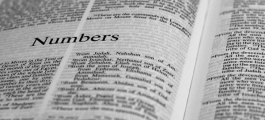Book of Joshua
Author: The Book of Joshua does not explicitly name its author. More than likely Joshua the son of Nun, the successor of Moses as leader over Israel, penned much of this book. The latter part of the book was written by at least one other person after the death of Joshua. It is also possible that several sections were edited / compiled following Joshua's death.
Date of Writing: The Book of Joshua was likely written between 1400 and 1370 B.C.
Purpose of Writing: The Book of Joshua provides an overview of the military campaigns to conquer the land area that God had promised. Following the exodus from Egypt and the subsequent forty years of the wilderness wanderings, the newly-formed nation is now poised to enter the Promised Land, conquer the inhabitants, and occupy the territory. The overview that we have here gives abbreviated and selective details of many of the battles and the manner in which the land was not only conquered, but how it was divided into tribal areas.
Read more


 100%
100%


